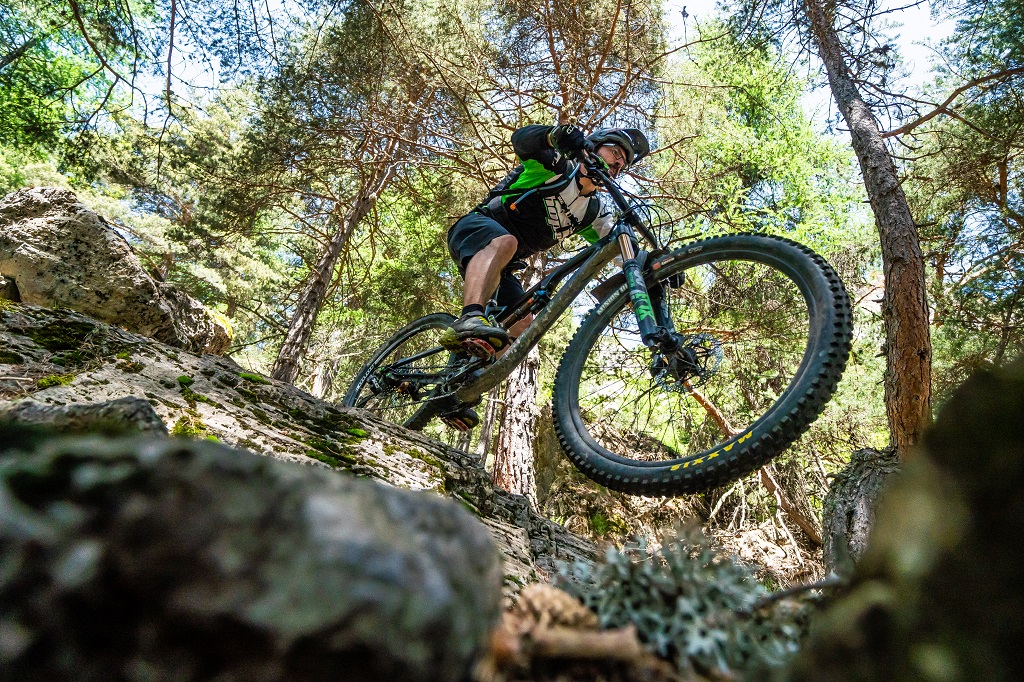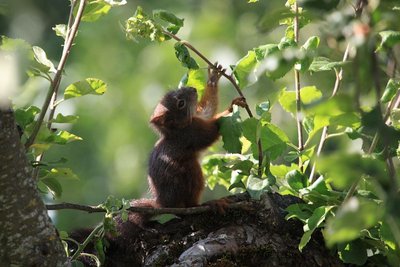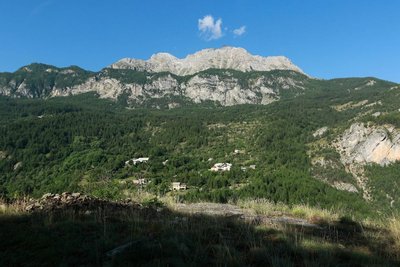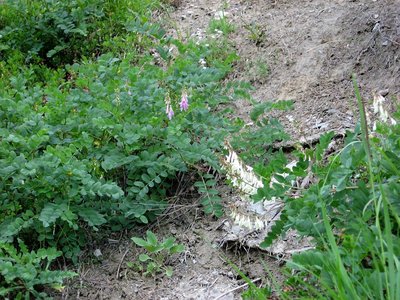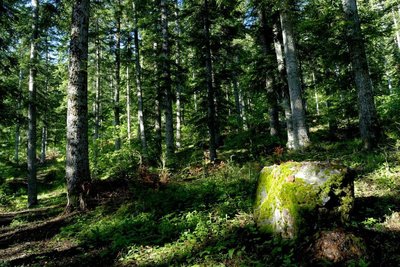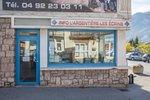Col des Combes circuit (no. 9)
Description
The route starts at the bridge spanning the Pavis, amidst cool, fresh surrounding on a track running upstream along the right-hand bank of the Biaysse mountain stream.
- 700 metres from the starting point, leave the track and continue straight ahead towards Les Rousses
- In Les Rousses, when you come to the end of the track on a bend, head to the right on the paved road and continue on uphill. After 200 metres, leave the road right and then follow the track which crosses the road twice before coming to Rase de Roussac
- Rejoin the road and then carry on uphill. After 1 kilometre, turn right towards Les Faures and then carry on towards the Col des Combes
- At the Col des Combes, carry straight on along a balcony path
- 350 metres after crossing the mountain stream Le Gourenq, head right and go downhill towards the park country cabin ("Cabane Pastorale du Parc") and then La Muande
- At the end of the track, go right onto another track which follows the Biaysse downstream on the right-hand bank, bringing you to your starting point
- Departure : Car park at the treetop adventure park ("Freissinières Aventure Nature") at the Pavis bridge, Freissinières
- Arrival : Car park at the treetop adventure park ("Freissinières Aventure Nature") at the Pavis bridge, Freissinières
- Towns crossed : Freissinières and Champcella
7 points of interest
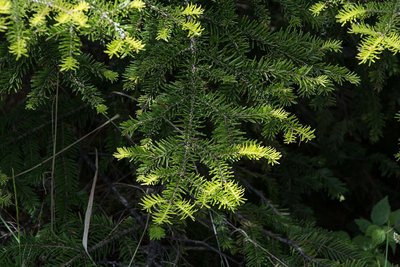
Un sapin pectiné - Mireille Coulon - Parc national des Écrins  Flora
FloraThe European silver fir
The fir thrives on this north-exposed slope, called the ubac. Its needles have two white stripes on their undersides. They are arranged on either side of the boughs, and not all the way around them, which distinguishes it from the spruce. The elongated cones stand upright, rather than hanging downwards. They grow in large number, often mingling with larch trees under whose shade they can grow. By contrast, the larch - the "tree of light" - cannot grow under the cover of fir trees.

Goodyère rampante - Marie-Geneviève Nicolas - Parc national des Écrins  Flora
FloraThe creeping lady’s-tress
This inconspicuous little orchid grows on moss, in the undergrowth of the pine forest. Growing at the base of the stem, its leaves are oval and pointed, with a network of veins. The upright stem only bears a few scales. Covered in a fine down, the white flowers are arranged in the form of a spiral spike, facing the same way. A little gem that is worth keeping an eye out for!
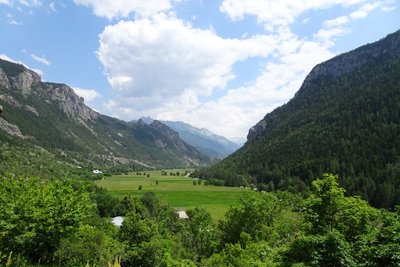
La vallée de Freissinières - Office de tourisme Pays des Écrins  History
HistoryThe Freissinières valley
The valley was created as the result of glacial overdeepening, that is to say, when the glacier came to a halt against the Pallon hard rock bar, it created a depression. When the glaciers retreated, a lake was left behind this rock bar and was gradually filled up by alluvial deposits. From a historical point of view, the Protestant pastor Félix Neff fundamentally altered life in the valley in 1826 by founding a training college for primary school teachers, developing irrigation processes and teaching new crop growing methods, among other things…
 Fauna
FaunaThe red squirrel
Elegant and alert, a squirrel crosses the track, followed by its long feathery tail. Red? This one is dark brown. In the mountains this rodent has adopted a “solar panel” strategy, on the principle that dark colours absorb the heat more efficiently. It is active during the day and does not hibernate, although it does minimise its activity on days when the weather is bad. It is a protected species.
 Geology and geography
Geology and geographyThe avalanche corridor
Better not to linger here! This corridor is regularly swept by avalanches, which is clearly obvious from the vegetation: although the willows and alders manage to bend under the force of the avalanche without too much breakage, although quick to resprout the larch trees won't grow to their full height! Flora
FloraThe sweetvetch
With its clusters of creamy white flowers, this plant forms large upright clumps and usually grows in beautiful colonies on screes and rocky limestone slopes. Endemic to the western Alps, it only grows in France in the southern part of the Alps. Although relatively common in the Pays des Écrins, it is protected at national level.
 Fauna
FaunaThe woodcock
Characterised by its long powerful beak, this bird frequents woods and forests, where it hides away during the day, and damp meadows where it feeds at night. Very shy, it can be detected by its call which is rather like a growl. Most woodcocks are migratory. They overwinter right around the shores of the Mediterranean and on the Atlantic coast, and nest in Northern Europe and Russia. But some of their number are virtually resident.
Forecast
Altimetric profile
Recommandations
Rescue services contact details: Secours Montagne(Mountain Rescue): +33 (0)4 92 22 22 22 or 112
Show consideration for the work of farmers, livestock keepers and owners
Take your litter home
Do not take shortcuts across pasturelandInformation desks
23 Avenue de la République, 05120 L'Argentière-La Bessée
Vallouise Park house
, 05290 Vallouise
Information, documentation, models, exhibitions, screenings, product sales and works of the Park. Guided tours for school, reservation required. The new Park House opened in Vallouise since June 1, and offers visitors an interactive permanent exhibition inviting to explore the area and its heritage. A temporary exhibition space will allow a renewed offer. Finally, the device is completed by an audiovisual room to organize screenings and conferences Free admission. All animations of the Park are free unless otherwise stated.
Transport
Public transport >> www.pacamobilite.fr
Consider car-sharing >> www.blablacar.fr
Access and parking
Source

Report a problem or an error
If you have found an error on this page or if you have noticed any problems during your hike, please report them to us here:

